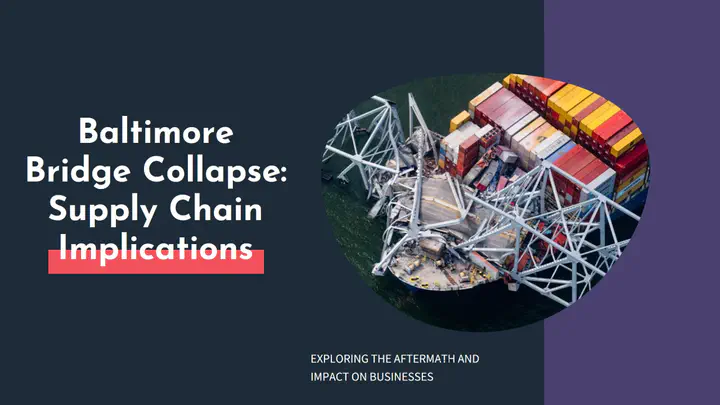Baltimore Bridge Collapse: What Happens Now? 🌉🚢

I have been deeply concerned about the recent crisis caused by the bridge collapse in Baltimore. This event has far-reaching implications for global trade and the resilience of all supply chains.
The Importance of the Port of Baltimore 🌍
The Port of Baltimore is a critical hub for the United States, handling a diverse array of cargo. In 2023, the port received over 43 million metric tons of goods, including:
- 🚢 Automobiles and machinery: 12.5 million metric tons
- 🌾 Agricultural products: 9.2 million metric tons
- 🛢️ Petroleum and chemicals: 8.3 million metric tons
- 📦 Consumer goods: 6.4 million metric tons
This port is a vital link in the global supply chain, connecting the U.S. to international markets and supporting millions of jobs. Its closure due to the bridge collapse will have far-reaching consequences.
The Causes and Implications of the Bridge Collapse 🌉💥
The bridge collapse was caused by a cargo ship striking the structure, leading to its catastrophic failure. This incident highlights the vulnerability of our critical infrastructure to unexpected events.
The bridge’s closure will disrupt maritime shipping routes, increasing lead times and shipping prices. Cargo destined for the Port of Baltimore must be rerouted, causing delays and added costs for businesses and consumers.
Challenges for Logistics Managers 🚛📊
For logistics manager, I anticipate several challenges in the wake of this crisis:
- 🔄 Rerouting and coordinating alternative transportation modes to bypass the affected area
- 🕰️ Managing extended lead times and delays in the delivery of goods
- 💰 Absorbing the increased costs of shipping and transportation
- 🔍 Maintaining visibility and control over the supply chain during the disruption
Insights for Supply Chain Professionals 💡
To navigate this crisis, supply chain professionals should:
- 🔍 Closely monitor the situation and stay informed on the latest developments
- 🧠 Develop contingency plans to mitigate the impact of the bridge collapse
- 🤝 Collaborate with partners and stakeholders to find innovative solutions
- 📈 Analyze data and trends to anticipate future disruptions and build resilience
Similar events, such as the Suez Canal blockage in 2021 and the recent port closures in China, have demonstrated the importance of supply chain resilience. By learning from these experiences, we can better prepare for and respond to future disruptions.
#SupplyChain #Logistics #PortManagement #Infrastructure #Resilience
References:
Maersk. (2024). Cargo to and from Port of Baltimore.
Dai, T. (2024). The Baltimore Bridge Collapse and Its Supply Chain Impacts.